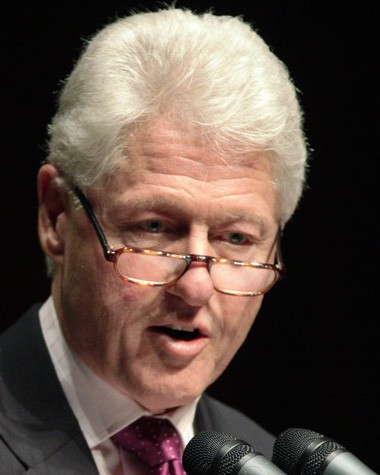The Daily Wildcat had an opportunity to participate in a conference call with former President Bill Clinton on Wednesday.
The call was part of this weekend’s annual meeting of the Clinton Global Initiative, held at the University of Miami, and addressed issues facing students and the former president’s activities since leaving the White House in 2000. Four student-journalists from universities across the country were given this opportunity.
“”I came to see how profoundly important it is that every citizen define good citizenship in the 21st century as more than getting a good education, working hard at your job, paying your taxes, being a responsible family member and voting,”” Clinton said. “”I think it also requires you to do some kind of non-governmental service. Something where, as a private citizen, you try to do public good.””
It was with this idea in mind that Clinton launched the Clinton Global Initiative University in 2007, to reach the next generation of leaders on college campuses.
“”I think every university should have a service mission and every university student should,”” Clinton said. “”I think it’s important to recognize that you don’t have to have a lot of money to make a big difference.””
Clinton discussed the rising cost of higher education in the United States.
“”The one thing no one disputes is that we still have the best system of higher education in the world,”” Clinton said. “”It’s really the crown jewel, not just of the American society and the American economy, but we are rapidly pricing it out of reach of our own citizens and those that come to our shores to attend college.””
Clinton described recent legislative actions of the Obama administration as steps in the right direction, particularly the recent Student Loan Reform Act that ended subsidized student loans and gave students the option of paying borrowed money back to the federal government as a fixed percentage of their income.
“”Think what this will mean with students getting out of college,”” Clinton said, “”and particularly if they go to graduate school, medical school, law school, other graduate education with these huge debts and thinking, ‘Boy, I’d like to do a public service job but I can’t make my debt requirement.’ That will all change when you go to income-dependent repayment cost.””
But Clinton stressed there is still much to do to meet the goal of providing affordable, accessible higher education to all students in the United States. “”This is a big first step, but it’s only a first step,”” Clinton said.
He expressed concern about the disproportionate rise in higher education costs, citing that tuition for a public university rose from 7 percent of the average family income in 1992 to more than 13 percent today.
“”Is it twice as good?”” Clinton wondered. “”And if not, why did it go up so much?””
Falling state financial support and other competing areas of cost were mentioned as reasons for the rise in college tuition.
“”Because higher education is so good in America and such a prized commodity, I think there’s been an assumption that it was price-inelastic, to use an economic term, that people would just keep paying or that the money would just be found. But it opens up a huge gap in American society because there’s so many people who need to go who can’t,”” he said.
University of West Virginia student journalist Devon Unger asked Clinton about his attempts to reform the national healthcare system and why he felt Obama succeeded where Clinton had not.
“”The problem now is even worse than it was then,”” Clinton said. “”When I tried to reform the American healthcare system and ensure universal access to healthcare, we were spending 14 percent of our income on healthcare and no one else was spending more than 10.
“”When President Obama signed that bill, we were spending 17.2 percent of our income on healthcare and all of our competitors were still spending between 9 and 10 1/2 percent.””









